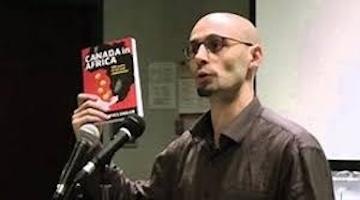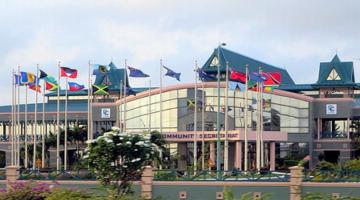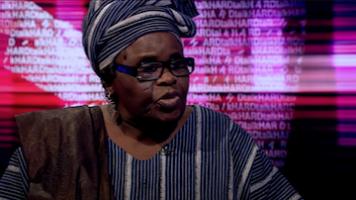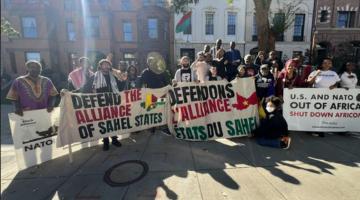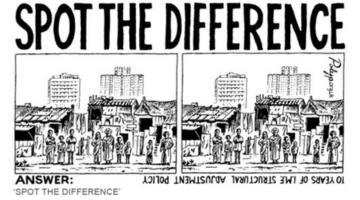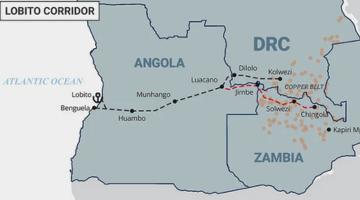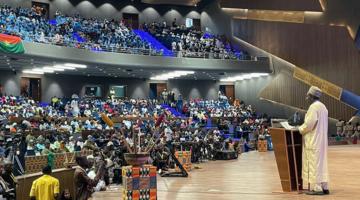At the All-African People’s Conference, in Cairo in 1961, delegates drafted a comprehensive and radical set of resolutions on neocolonialism: “an indirect and subtle form of domination by political, economic, social, military or technical means.”
Although the third All-African People’s Conference was also the last All-African People’s Conference, it left a theoretical legacy that has long animated our understanding of the history and practice of neocolonialism in Africa. The first All-African People’s Conference was staged in newly-independent Ghana, in Accra from December 8 to 13, 1958. It was hosted by Kwame Nkrumah and George Padmore, and inaugurated with a message (delivered by Shirley Graham Du Bois) from the venerable W.E.B. Du Bois. This first All-African People’s Conference self-consciously evoked the history of the Pan-African conferences staged between 1900 and 1945 during the preliminary decades in the struggle for African independence. While those earlier conferences were held outside of Africa, the 1958 All-African People’s Conference was the first Pan-African gathering held on the continent. Present at the conference was the leadership of the handful of newly-independent African states as well as leaders of the African independence movements, many of whom were meeting each other for the first time. The Algerian independence struggle animated the proceedings in Accra, as debates over the role of violence in forcing decolonization.
Algeria’s independence struggles continued to simmer during the Second All-African People’s Conference, held three years later, from January 25 to 30, 1960 in Tunis. In Tunis, there were calls for all-African brigades to fight against the French in Algeria. There were debates over the French efforts to halt the process of African decolonization. And there were protests over French atomic tests in Algeria. The question of neocolonialism was also raised in Tunis, as African people increasingly understood that the African revolution would be met with counter-revolution – and the old tethers of colonialism would take on new, insidious forms.
It was not, however, until the Third All-African People’s Conference, held in Cairo from March 25-31, 1961 that the practices of neocolonialism were systematically identified and articulated. Overshadowed by the assassination of Patrice Lumumba on January 17, 1961 and the onset of the Congo Crisis, the mood in Cairo was one of urgency, anger, and militancy. The United States was attacked for its role in the assasination of Lumumba and its support of the former colonial powers. There were calls for the end of white rule in South Africa and of Portuguese colonialism in Angola, Mozambique, and Guinea. Delegates also drafted an extensive set of resolutions on neocolonialism, which they described as an “an indirect and subtle form of domination by political, economic, social, military or technical means,” and which they saw as “the greatest threat to African Countries that have newly won their independence or those approaching this status.” It is a remarkable document that anticipates Jean Paul Sartre’s Colonialism and Neocolonialism (1964) and Kwame Nkrumah’s classic 1965 study Neocolonialism: The Highest Stage of Imperialism.
Unfortunately, Cairo also saw the beginnings of the fracturing of the pan-African alliances and solidarity that had motivated the All-African People’s conferences. The acceleration of decolonization was countered by the deepening of neocolonialism. The movement towards African unity was undermined by a new embrace of the European master. Irreparable ideological differences emerged between conservative and radical states. Plans to hold the Fourth All-African People’s Conference in 1962 in Bamako, Mali, were abandoned. The dangers outlined in the 1961 Cairo resolutions increasingly came to pass. The possibility of pan-Africanism was sabotaged by the skulking subversions of neocolonialism. The struggle continues.
RESOLUTION ON NEOCOLONIALISM
All-African Peoples’ Conference
Cairo, Egypt, March 25–31, 1961
The third All-African Peoples’ Conference meeting in Cairo from the 25th to the 31st of March, 1961, having carefully reviewed the current situation in Africa;
Considers Neo-colonialism, which is the survival of the colonial system in spite of formal recognition of political independence in emerging countries which become the victims of an indirect and subtle form of domination by political, economic, social, military or technical means, is the greatest threat to African Countries that have newly won their independence or those approaching this status.
Emphasises the examples of the Congo, the French Community, the Federation of Rhodesia and Nyasaland, which indicate that the colonial system and international imperialism, realizing their failure in facing the development of revolutionary movements in Africa, make use of many means to safeguard the essential of their economic and military power.
When the recognition of national independence becomes inevitable, they try to deprive these countries of their essence of real independence. This is done by imposing unequal economic, military and technical, conventions; by creating puppet governments following false elections, or by inventing some so-called constitutional formulas of multinational co-existence intended only to hide the racial discrimination favouring settlers.
Whenever such machinations appear insufficient to hamper the combativity and determination of popular liberation movements, dying colonialism tries, under the order of Neo-Colonialism or through the guided intervention of the United Nations, the balkanization of newly-independent States or the systematic division of the political or syndical vivid forces, and in desperate cases, like the Congo, colonialism goes as far as plots, repressive measures by army and police, and murderous cold-blood.
Considering that Neo-Colonialism manifests itself through economic and political intervention, intimidation and blackmail in order to prevent African states from directing their political, social and economic programmes towards the exploitation of their natural wealth for the benefit of their peoples.
Considers that such countries as the United States, Federal Germany, Israel, Britain, Belgium, Holland, South Africa and France are the perpetrators of Neo-Colonialism.
Manifestations of Neo-Colonialism
The Conference denounces the following manifestations of Neo-Colonialism in Africa:
(a) Puppet governments represented by stooges and even fabricated elections, based on some chiefs, reactionary elements, anti-popular politicians, big bourgeois compradors or corrupt civil or military officials.
(b) Regrouping of states, before or after independence, by an imperial power in federation or communities linked to that imperial power.
(c) Balkanisation as a deliberate policy of fragmentation of states by creation of artificial entities such as Katanga, Mauritania, Buganda, etc.
(d) The economic entrenchment of the colonial power before independence and the continuity of economic dependence after formal recognition of national sovereignty.
(e) Integration into colonial economic blocks which maintain the under-developed character of African economy.
(f) Economic infiltration by a foreign power after independence, through capital investments, loans and monetary aid, or technical experts under unequal concessions, particularly those extending for long periods.
(g) Direct monetary dependence, as in those emergent independent states whose finances remain directly controlled by colonial powers.
Agents of Neo-Colonialism
The Third All-African Peoples’ Conference exposes the following agents of Neo-Colonialism:
(a) Colonial embassies and missions serving as nerve centres for espionage and pressure points on local African governments directly or through their civil or military technicians.
(b) So-called foreign and United Nations technical assistants who ill-advise and sabotage national political, economical, educational and social development.
(c) Military personnel in armed forces and police, as officers and advisers who serve above all, the colonial interests directly, or through local officers who remain loyal to their former masters.
(d) The representatives from imperialist and colonial countries, under the cover of religion, Moral Re-armament, cultural, Trade Union and Youth and Philanthropic organizations.
(e) The malicious propaganda by radio, press, literature controlled by imperial and colonial countries, as well as in some independent African Countries where press and radio are still owned by imperialist powers.
(f) Puppet Governments in Africa being used by imperialists in the furtherance of Neo-Colonialism, such as the use of their good offices by the neo-colonial powers to undermine the sovereignty and aspirations of other African States.
Means of Fighting Neo-Colonialism
The Third All-African Peoples’ Conference, whose very reason of existence is the mobilization of the African masses for the liberation of Africa, is firmly convinced that it is by intensifying this mobilization that Africa will find the most efficient way to fight Neo-Colonialism and to extract the last roots of imperialism.
It is the duty of popular, political, syndical, youth and women’s organizations, not only to inspire and wage the struggle against Neo-Colonialism, but also, and above all to be vigilant, to control the correct application of the general outline and to denounce all those who attempt to deviate it from its real objectives.
The Conference realizes that the struggle against Neo-Colonialism must be associated with the struggle against all forms of opportunism which is the mask of the accomplices of imperialism.
It is therefore by awakening of the conscience of the masses by the establishment of landmarks of real liberation, that the masses will be freed from the power of certain slogans and formulas that only serve as a camouflage for colonialism.
That is why, the Conference:
(a) Condemns the balkanization of emerging States, whether dependent or independent, as a way to perpetuate Neo-Colonialism in Africa (Congo, Mauritania, Northern Rhodesia, Buganda, etc.).
(b) Condemns the federations and communities created before independence under the patronage of colonial States.
(c) Invites all independent African States to give aid and assistance to liberate the African countries still under foreign domination.
(d) Urges all independent Africa States which still retain former military and para-military bases, to liquidate these bases as soon as possible.
(e) Conference reaffirms its determination to continue to mobilize popular mass opinion to denounce enemies of true independence and agents of Neo-Colonialism camouflaged in all possible forms.
(f) This Conference denounces aid with expressed or unexpressed strings attached.
(g) The Conference urges independent African States to intensify their efforts for the creation of an effective form of cooperation among African States in the Economic, Social and Cultural domains in order to frustrate Neo-Colonialism.
(h) This Conference deplores the attitude of some independent African States who, under the guise of neutrality, are passive even on matters affecting the whole of Africa, and who, by their passiveness in activities in fact promote the cause of Neo-Colonialism.
(i) The Conference calls for the immediate launching of the All-African Trade Union Federation as an effective means of counteracting Neo-Colonialism.
All-African Peoples’ Conference, Resolution on Neocolonialism, Cairo, Egypt, March 25–31, 1961. Source: All-African People's Conference News Bulletin, Vol. I, No. 4 (Accra: 1959): 1-2. Also available as “What is neo-colonialism? full text of the main resolution passed by the third All-African peoples conference,” Labour Monthly Vol. 43, (June 1961): 276-279.



